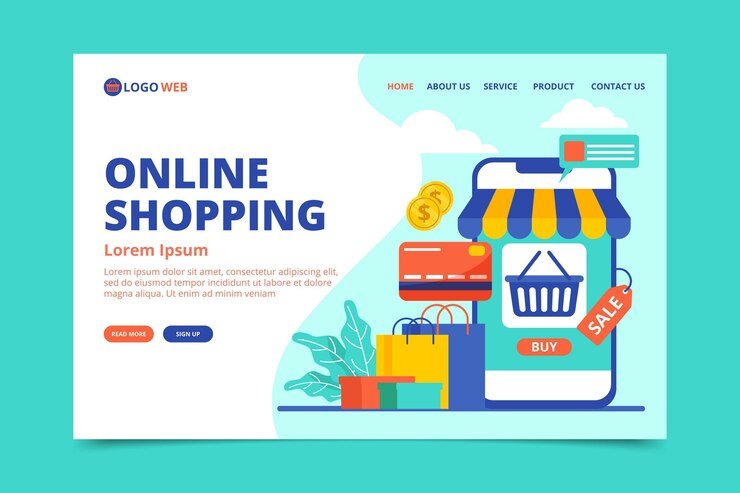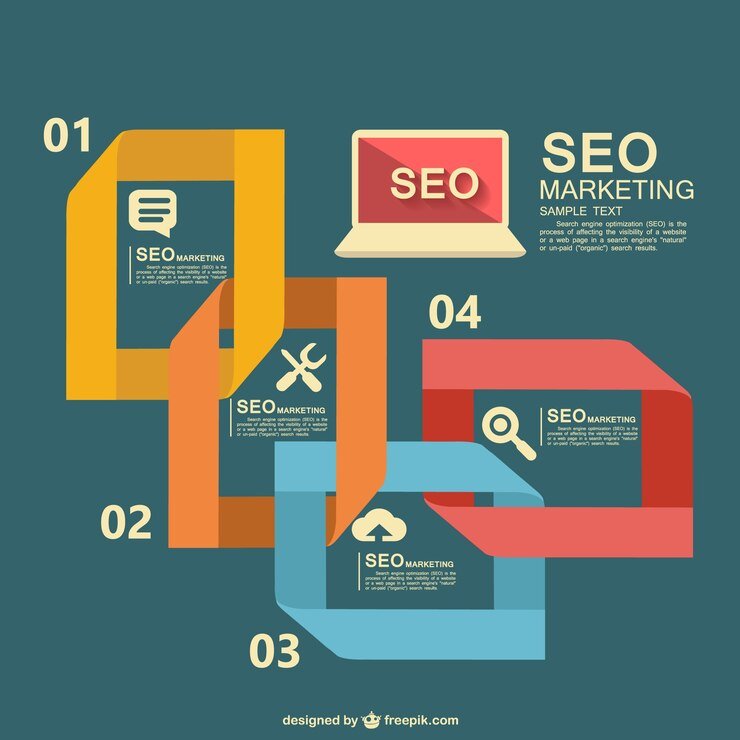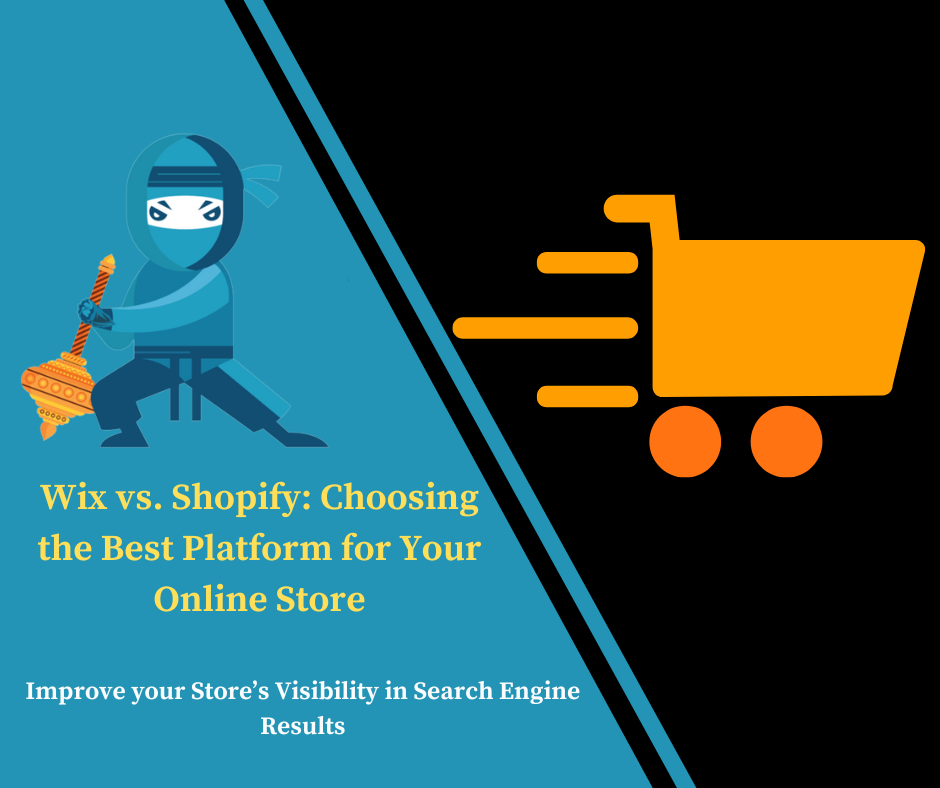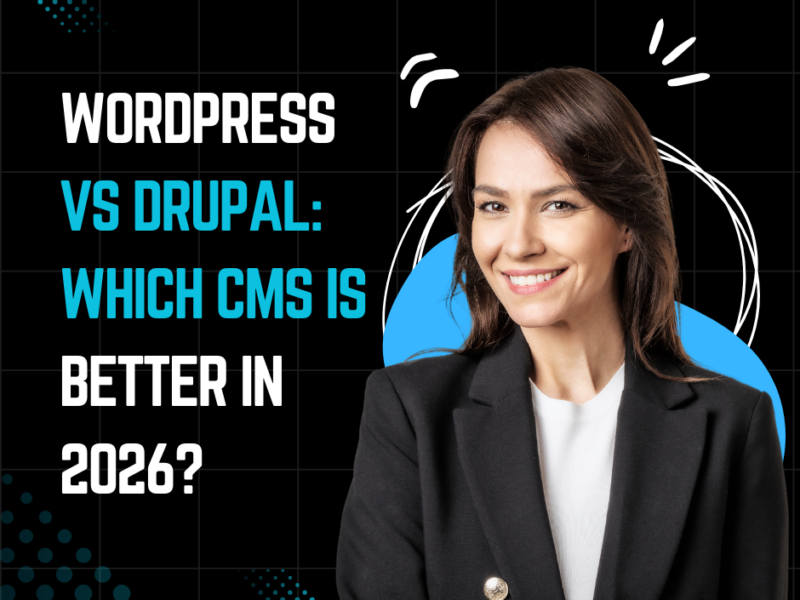Wix vs. Shopify: Choosing the Best Platform for Your Online Store
Selecting the right platform is crucial for your business’s success when starting an online store. Two popular options that often come up are Wix vs. Shopify. Both platforms offer powerful tools for building a successful e-commerce website but cater to different needs. This article will help you understand the key differences between Wix and Shopify so that you can choose the best platform for your online store. Let’s dive into the Wix vs. Shopify comparison, considering factors like ease of use, pricing, features, and scalability.
1. Overview of Wix and Shopify
Wix is a versatile website builder known for its drag-and-drop simplicity, catering to users who want to create a variety of websites, from personal blogs to business portfolios. It also has e-commerce capabilities, allowing small businesses to sell online. Wix is suitable for those looking for creative freedom and a platform that’s easy to use.
Shopify, on the other hand, is specifically designed for e-commerce. It is a robust platform that offers everything needed to create and manage an online store. Shopify is known for its advanced e-commerce features, seamless integrations, and scalability, making it the ideal choice for those focused on building and growing an online retail business.

2. Ease of Use
When comparing Wix vs. Shopify, ease of use is a significant factor for most users.
Wix: Wix is well-known for its user-friendly drag-and-drop editor. You don’t need any coding knowledge to build a site, making it perfect for beginners. Wix’s WYSIWYG (What You See Is What You Get) editor lets you visualize your website in real time, allowing for complete customization.
Shopify: Shopify also offers a user-friendly interface, but it’s more structured compared to Wix. It has a streamlined dashboard that makes managing products, orders, and analytics easier for store owners. Although Shopify may have a steeper learning curve for complete beginners, it’s more intuitive for those focused on managing an e-commerce store.
3. Design and Customization Options
Wix: Wix offers over 800 templates, including a variety of e-commerce themes. Its drag-and-drop feature allows users to customize their store to fit their brand vision precisely. However, one drawback is that once you’ve selected a template, you cannot switch to another without rebuilding your site. Wix is ideal for those who prefer design flexibility and want to create unique store layouts.
Shopify: Shopify provides over 70 themes, both free and paid, designed explicitly for e-commerce. Shopify’s themes are optimized for sales and provide a clean and professional look. While customization is possible using the theme editor, it’s more structured compared to Wix, which means fewer customization options unless you are comfortable using code. For businesses focusing on sales optimization, Shopify’s themes are a great choice.
Also read: Magento vs. Shopify: Which E-Commerce Solution Fits You?
4. E-Commerce Features
Wix: Wix’s e-commerce capabilities are suitable for small to medium-sized businesses. It includes essential features like product pages, inventory management, and payment processing. However, its features are more limited compared to Shopify when it comes to advanced functionalities like multi-channel selling, abandoned cart recovery, and extensive analytics.
Shopify: Shopify is built for e-commerce from the ground up and offers a wide range of powerful features. It includes support for unlimited products, inventory tracking, discount codes, abandoned cart recovery, multi-channel selling (including social media and marketplaces), and a wide range of payment gateways. If you need advanced e-commerce tools and plan on growing your business, Shopify is the better choice.
5. Payment Options and Transaction Fees
Wix: Wix offers multiple payment options, including credit cards, PayPal, and Stripe. Wix doesn’t charge additional transaction fees, which makes it an attractive option for smaller businesses. However, the number of payment gateways supported by Wix is fewer than Shopify.
Shopify: Shopify offers an extensive list of payment options, including Shopify Payments, PayPal, Stripe, and more. Shopify charges a transaction fee (ranging from 0.5% to 2%) if you don’t use Shopify Payments. This fee may be a downside for some, but the platform’s advanced tools and features may justify the cost for many businesses.

6. Pricing Plans
Wix: Wix has a range of pricing plans, starting with a basic plan that is relatively affordable for small businesses. The Business Basic plan costs $23 per month and includes e-commerce functionalities like product pages and payment processing. There are also higher-tier plans with additional features, which are suitable for larger stores.
Shopify: Shopify’s pricing plans start at $39 per month for the Basic Shopify plan, which includes all the essential features for running an online store. Shopify’s pricing is higher compared to Wix, but it includes more comprehensive e-commerce tools, which makes it suitable for serious e-commerce businesses. Shopify also offers Shopify Plus for enterprise-level businesses looking for advanced features and support.
Also read: Shopify vs. WooCommerce: Which E-Commerce Platform Is Best?
7. App and Integration Options
Wix: Wix has an app market with over 300 apps and integrations, including tools for SEO, email marketing, and live chat. While the selection is decent, it’s not as extensive as Shopify’s, and some features are limited in functionality when it comes to e-commerce.
Shopify: Shopify has a robust App Store with over 6,000 apps. From marketing and sales tools to inventory and shipping solutions, Shopify’s App Store has almost everything you need to enhance your store’s functionality. The range of apps gives store owners the ability to expand their capabilities with ease.
8. SEO and Marketing Tools
Wix: Wix includes built-in SEO tools that help users optimize their websites, like customizable meta tags, alt text for images, and a beginner-friendly SEO wizard. For marketing, Wix offers email marketing and integration with social media platforms, which is sufficient for small businesses.
Shopify: Shopify also has strong SEO features, including customizable URLs, title tags, and image optimization. Shopify’s platform is designed with e-commerce SEO in mind, helping online stores rank better. It also has more advanced marketing tools, such as abandoned cart emails, integrations with Google Shopping, and multi-channel selling options that help expand the reach of your store.

9. Scalability
Wix: Wix is ideal for small to medium-sized businesses that need an easy-to-use website builder with e-commerce functionality. However, Wix’s scalability is limited when it comes to handling large product inventories and advanced e-commerce features. It’s not the best option if you plan on rapidly expanding your online store.
Shopify: Shopify is built for growth. Whether you’re just starting or scaling to an enterprise-level business, Shopify provides the necessary tools to support your growth. With support for unlimited products, advanced analytics, and integration with major marketplaces and social media channels, Shopify is a platform that grows with your business.
10. Customer Support
Wix: Wix offers 24/7 customer support via email and phone, along with a large knowledge base that provides tutorials and answers to common questions. Customer support is reliable for users who might need assistance with website building.
Shopify: Shopify provides 24/7 customer support through email, phone, and live chat. The platform also has a large community forum and an extensive knowledge base, which is extremely helpful for solving issues quickly. Shopify’s support team is well-equipped to handle e-commerce-specific inquiries, making it a better choice for online store owners.
Wix vs. Shopify: Which Is Best for You?
Choosing between Wix vs. Shopify ultimately depends on your business needs. If you are a small business or individual looking for a simple, affordable way to start selling online and want maximum creative control, Wix is a great choice. It offers a lot of design flexibility, and its e-commerce features are sufficient for small online stores.
However, if you’re looking for a dedicated e-commerce platform with advanced features and scalability, Shopify is the clear winner. It is designed specifically for e-commerce and provides all the tools you need to create, manage, and grow a successful online store. Shopify is ideal for businesses that are focused on sales, growth, and expanding their reach.
FAQ
Is Wix or Shopify better for a beginner?
Wix is better for complete beginners because of its intuitive drag-and-drop editor and overall simplicity. Shopify also has a user-friendly interface but may require more time to learn for beginners focused on e-commerce.
Can I switch from Wix to Shopify later on?
Yes, it’s possible to switch from Wix to Shopify, but it will require manually migrating your website content and product listings. There are third-party tools available that can help with migration, but it’s recommended to choose the right platform initially to avoid the hassle.
Which platform is more affordable, Wix vs. Shopify?
Wix is more affordable for small businesses, with e-commerce plans starting at $23 per month. Shopify’s plans start at $39 per month but include more comprehensive e-commerce tools, which might justify the higher price for larger businesses.
Which platform offers better e-commerce features, Wix vs. Shopify?
Shopify offers more advanced e-commerce features, including support for unlimited products, multi-channel selling, abandoned cart recovery, and extensive app integrations. Wix’s e-commerce features are more basic, making it suitable for smaller online stores.
Can I use my domain name with both Wix vs. Shopify?
Yes, both Wix and Shopify allow you to connect a custom domain name to your online store.
Conclusion
In the debate of Wix vs. Shopify: Choosing the Best Platform for Your Online Store, the right choice depends on your specific needs and goals. Wix shines as a versatile, user-friendly platform perfect for small businesses or individuals who want complete creative control over their website while also selling online. Its ease of use and affordability make it an attractive option for those just starting. On the other hand, Shopify stands out as a dedicated e-commerce powerhouse, offering advanced features and scalability for those focused on growing their online retail business. If you’re planning on expanding your store, managing large inventories, and leveraging powerful e-commerce tools, Shopify is the better choice.








